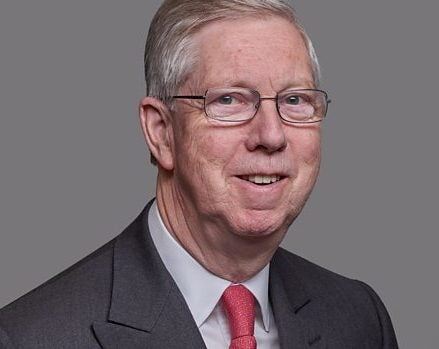
Putting the BBC behind a paywall would “diminish” its output and lead to a “weakened United Kingdom” according to the corporation’s chairman.
Sir David Clementi (pictured) will say in a speech in Salford, Greater Manchester, today that BBC local TV and radio would be put at risk if licence-fee evasion is decriminalised.
He will say the Government would also have to find millions to fund the BBC World Service if it moved to a voluntary subscription model.
The Government launched a public consultation last week on whether it should continue to be illegal not to pay the licence fee, which can currently result in a fine of up to £1,000.
Culture Secretary Nicky Morgan said “the time has come to think carefully” about making sure the licence fee “remains relevant” at a time when TV audiences are shifting to digital platforms.
But Clementi will warn that although the BBC could thrive as a voluntary subscription model, it “would not be the BBC that the nation knows and values and, behind a paywall, it would not be available to everyone”.
“A subscription service would be unlikely to have much regional presence,” he will say.
“It would not fund anything like the amount of money that the BBC at present puts into the nations and regions, in television and in local radio.
“It would be very unlikely to continue the level of properly curated programmes for children, or indeed the brilliant Bitesize education services that have helped so many teenagers.”
Clementi will add that the £250m currently taken from the licence fee to fund the World Service would need to come from Government instead.
Meanwhile putting events like Remembrance Day, Royal weddings and the Olympic Games behind a paywall would stop the BBC from being “the place that all could turn to celebrate live important moments we enjoy as a nation”.
“It’s clear that a discussion of what sort of BBC we want must run in parallel with the debate about its funding, since the two are inextricably linked.”
Clementi will say the BBC is “always open to debate” and will engage fully with the Government’s consultation, but that “in having that debate, it is vital to make sure it is fully informed”.
“No other brand resonates around the world like the BBC,” he will add. “No other national asset has the potential to serve Britain so powerfully – uniting us as one nation at home, and representing global Britain abroad.
“The BBC is a great national asset – a diminished BBC is a weakened United Kingdom.”
Prime Minister Boris Johnson raised questions over the BBC’s funding model during last year’s general election campaign, saying the licence fee was “effectively a general tax”.
It prompted a defence of the licence fee from BBC director-general Lord Tony Hall, who said the broadcaster’s success lies in it “being paid for and owned by the British public”.
Announcing a public consultation on decriminalising the lincence fee last week, Baroness Morgan said: “Many people consider it wrong that you can be imprisoned for not paying for your TV licence and that its enforcement punishes the vulnerable.”
Picture: BBC
Email pged@pressgazette.co.uk to point out mistakes, provide story tips or send in a letter for publication on our "Letters Page" blog
